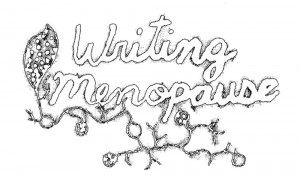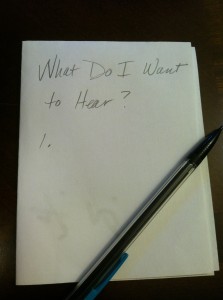 Writing Menopause, a diverse literary collection about menopause to be published in the spring of 2017 by Inanna Publications, was first introduced to the Society for Menstrual Cycle Research in a session presented at our June 2015 biennial conference in Boston. The anthology includes about fifty works of fiction, creative nonfiction, poetry, interviews, and cross-genre pieces from contributors across Canada and the United States. With this collection, editors Jane Cawthorne and E.D. Morin hope to shine a light on a wide variety of menopause experiences and to shatter common stereotypes. This week at re: Cycling we are pleased to be able to preview excerpts from the collection. Preview #1 included a short prose piece and a poem by Tanya Coovadia. Today’s preview is by SMCR member Heather Dillaway, a piece that was previously published on this blog.
Writing Menopause, a diverse literary collection about menopause to be published in the spring of 2017 by Inanna Publications, was first introduced to the Society for Menstrual Cycle Research in a session presented at our June 2015 biennial conference in Boston. The anthology includes about fifty works of fiction, creative nonfiction, poetry, interviews, and cross-genre pieces from contributors across Canada and the United States. With this collection, editors Jane Cawthorne and E.D. Morin hope to shine a light on a wide variety of menopause experiences and to shatter common stereotypes. This week at re: Cycling we are pleased to be able to preview excerpts from the collection. Preview #1 included a short prose piece and a poem by Tanya Coovadia. Today’s preview is by SMCR member Heather Dillaway, a piece that was previously published on this blog.
Fact and Fiction: Two Lists by Heather Dillaway
List One: Things Menopausal Women Would Love to Hear That ARE True
 It’s okay to be glad to be done with menstruation, the threat of pregnancy and the burdens of contraception. It’s also okay to use the menopausal transition to question whether you really wanted kids, whether you had the number of kids you wanted and whether you’ve been satisfied with your reproductive life in general. It’s normal to have all of these thoughts and feelings.
It’s okay to be glad to be done with menstruation, the threat of pregnancy and the burdens of contraception. It’s also okay to use the menopausal transition to question whether you really wanted kids, whether you had the number of kids you wanted and whether you’ve been satisfied with your reproductive life in general. It’s normal to have all of these thoughts and feelings.- You’re entering the best, most free part of your life! But, it’s okay if it doesn’t feel like that yet.
- Menopause does not mean you are old. In fact, potentially you are only half way through your life.
- You are not alone. Lots of people have the experiences you do. You are normal!
- I understand what you’re going through. (Or, alternatively, I don’t completely understand what you’re going through but I’m willing to listen.)
- It’s okay to be confused and frustrated at this time of life, or in any other time of life!
- You’ve had an entire lifetime of reproductive experiences and this is simply one more. How you feel about menopause is probably related to how you’ve felt about other reproductive experiences over time. It might be helpful to reflect back on all of the reproductive experiences you’ve had to sort out how you feel about menopause.
- Talk to other women you know. Talking about menopause helps everybody.
- Menopause and midlife can be as significant or insignificant as you’d like them to be. For some women, these transitions mean very important things but, for others, they mean little. Whatever it means to you is okay.
- Researchers are working hard to understand this reproductive transition more fully.
These represent the kind of supportive comments women might want to hear while going through menopause and, in particular, perimenopause. Items on this list also help us acknowledge that our bodies and bodily transitions cause us to reflect on our life stages, our identities and our choices.
List Two: Things Menopausal Women Would Love to Hear But Might NOT Be True
- This is guaranteed to be your last menstrual period. You are done! (Or, a related one: You’ve already had the worst. It gets better from here on out!)
- Signs and symptoms of menopause will be predictable and will not interrupt your life.
- No one will think negatively of you or differently about you if you tell them you’re menopausal.
- There are no major side effects to hormone therapies or any other medical treatments you might be considering.
- Doctors will be able to help you and will understand your signs and symptoms, if you need relief.
- Leaky bodies are no problem! No one will care if your body does what it wants, whenever it wants.
- Partners, children, coworkers and others will completely understand what you’re going through.
- Middle-aged women are respected in this society and it is truly a benefit to be at this life stage.
- There is a clear beginning and a clear end to this transition.
- Clinical researchers are researching the parts of menopause that you care about.
This reflects many of our societal norms and biases about our bodies, aging, gender, fertility and so on. This list also attests to the difficulties that menopausal women have in accessing quality health care or getting safe relief from symptoms when needed and notes the potential disconnects between research findings and women’s true needs during this transition.
Heather Dillaway is an associate professor of sociology at Wayne State University in Detroit, Michigan. Her research focuses on women’s menopause and midlife, and she often writes about the everyday experiences of going through these transitions. She teaches about women’s health, families and gender & race inequalities.

